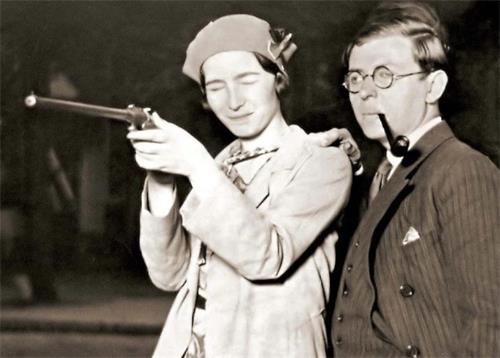
In 1929, the young Jean-Paul Sartre was studying at the École Normale Supérieure in Paris, filled with curiosity and passion. Along with his two close friends, Nizan and Eaubonne, he formed a small group known as the "Three Musketeers." They immersed themselves in the world of philosophy and literature, driven by their pursuit of knowledge and dreams of the future. It was during this time that a brilliant and graceful young woman—Simone de Beauvoir—quietly entered Sartre’s life, changing his world forever.
The two were instantly drawn to each other. Whether strolling through the streets of Paris in the morning or conversing late into the night in cafés, they never tired of discussing their thoughts, their dreams, and the books they planned to write. During this period, Sartre and Beauvoir seemed like soulmates destined to be together, sharing the challenge of their final exams. In the end, Sartre ranked first in his class, with Beauvoir close behind as the second-highest scorer. This time in their lives was like a beautiful dance of two minds in the vast ocean of knowledge.
However, fate soon led them to a separation. Sartre was called for military service, forcing him to leave Paris for a distant post. Despite the physical distance, they devised a unique "love contract." Though it had no legal standing, it was a pact built on mutual trust and commitment. It required them to remain intimately connected, always honest, and never deceive each other. Their relationship was not just about love—it was a pledge, a profound understanding of sincerity and respect.
As their relationship deepened, differences in their views on love began to emerge. Sartre was upfront with Beauvoir: "I was born a solitary man. I will never marry. I love all women, but I want to maintain this special relationship with you without ever getting married." He was committed to independence and freedom, believing that marriage would not define or confine his understanding of love. Though some might see his views as selfish, Beauvoir was not resentful. She had long understood Sartre’s beliefs and accepted them.
Beauvoir did not feel disappointed or angry; instead, she admired Sartre’s independence and freedom. She once said, "Sartre does not want to fulfill the obligations of monogamy. He enjoys being with different women—that is part of who he is. I understand this, and I also know that we share a necessary love, but I, too, need occasional love." Her view of love was one of tolerance and openness. To her, love was not about confinement but a spiritual contract, a union of mutual respect and freedom.
This unique relationship never suffered from betrayal; rather, it grew stronger over time. Although Sartre and Beauvoir never married, they remained deeply emotionally connected, their lives intertwined for more than fifty years until Sartre’s passing in 1980.
The love between Sartre and Beauvoir was a fusion of reason and emotion, a Platonic ideal. Though they did not marry or build a conventional family, their love transcended all societal constraints, forming a profound and lasting bond. They were not just lovers but intellectual companions and soulmates. Their love upheld individual freedom while also providing a sense of belonging and peace.
Sartre and Beauvoir’s relationship remains a timeless example of the coexistence of reason and passion. Their love, unbound by marriage yet deeply sincere, was marked by understanding and acceptance. Even today, their story continues to be celebrated as a symbol of love, freedom, intellect, and passion intertwined.

Niulang,Zhinu
A Love That Crosses the Milky Way: The Thousand-Year Devotion of Niulang and Zhinu
In the vast, ancient sky, the Milky Way stretches across the endless night, telling a love story that transcends time and space.

Mara,Roy
From Expectation to Letting Go: An Irrevocable Tragic Love
Amid the turbulent changes of the 20th century, there was a poignant love story—like a radiant pearl, yet as fleeting and painful as a meteor over the sea.

The New England,Black Day
Daylight in Darkness: Unveiling the Truth Behind the New England "Black Day" Phenomenon
On May 19, 1780, an unusual astronomical phenomenon occurred in the New England region of North America and parts of Canada—known as the "Black Day."


